You may have heard of Vaginismus? Maybe you have a friend or partner who have told you about it? Or maybe you are one of the estimated 2 in 1000 women who have experience of this painful condition first hand?
Whilst occasional minor pain and burning sensations during sex may not mean anything more serious than your vagina needing more lube, ongoing pain and burning sensations needs investigating further.
With more and more women coming forward to seek help for painful & difficult sex, we see an increasing number of customers with Vaginisimus.
What is Vaginismus?
Vaginismus is a sexual pain disorder where the muscles in and around the vagina tighten and go into spasm - the vagina can close up completely. It can make penetration, gynecological and pelvic exams difficult, or even impossible. Some women may need anaesthetic before a doctor can examine them.
It is important to note that Vaginismus is not triggered deliberately or intentionally by the women suffering with it. It happens involuntarily without their intentional control and often without any awareness on their part.
Tackling the psychological implications and the physical symptoms simultaneously is the most effective way forward, but most important of all is to realise that having Vaginisimus need not mean an end to a woman’s sex life.
There are two types of Vaginismus:
- Primary vaginismus - when a woman has never been able to have sex because of the condition.
- Secondary vaginismus - when a woman has previously been able to have sex but now find it difficult or impossible.
Symptoms of Vaginusmus differ between women:
- Some women are unable to insert anything into their vagina.
- Some women can insert a tampon and complete a gynae exam, but cannot insert a penis or dildo.
- Other women can partially insert a penis or dildo, but it is very painful.
- Some are able to fully insert a penis or dildo, but tightness and pain prevent orgasm.
- Some women experience years of intermittent difficulty with sex and have to be constantly ready to control and relax their vagina when the symptoms occur.
Symptom severity range:
- Minor discomfort or burning with tightness is experienced with vaginal entry or thrusting but may diminish.
- More significant burning and tightness is experienced with vaginal entry or thrusting and tends to persist.
- Involuntary tightness of the vaginal muscles makes entry and movement difficult and painful.
- Partner is unable to penetrate due to tightly closed vaginal opening. If entry is forced, significant pain results.
What Causes Vaginismus?
Many factors can cause Vaginismus, but it is not always fully understood why the condition happens. For some women, it may be caused by a traumatic past experience such as a difficult childbirth or sexual abuse; they may associate sexual activity with pain.
Example: We met one woman who had been a victim of childhood abuse. Not surprisingly, her body didn’t want any kind of sex - but she was determined to grit her teeth and go through with it to please her boyfriend, who was unawares of the past trauma.
Other factors causing the condition include, but are not limited to: yeast or urinary infections, menopause, hysterectomy. cancer, surgical procedures or deep-rooted beliefs that sex is "bad"... The list goes on.
How Many Women Suffer With Vaginismus?
According to a Vaginismus information website, the estimated number of women suffering with Vaginsmus is roughly 2 in 1000. Whilst we're unable to give a definite number, our estimation - based on the number of women with Vaginismus we meet - is a lot higher than that.
Every year, we see large numbers of women who have been informally referred to us by their doctor, therapist or nurse specialist - but those are only the ones who have actively looked for help. Add to this all the women who have yet to pluck up the courage to seek help, or those who feel too uncomfortable to talk about their vagina and how it feels during sex.
Part of the problem, we believe, is the number of sex-negative doctors, nurses or therapists out there. Many women are reporting back to us that health professionals are unwilling to discuss sex.
Over the years, we have met women who have been told to accept their sex life is over, or that they just have to 'get through it'. This attitude is incredibly damaging, and just adds to the feeling of 'failure' on the woman's part.
Vaginismus - Self Diagnosing
We regularly meet women who have self-diagnosed, which isn't recommend. If sex is painful, we always advise booking an appointment with a (supportive and sex-positive) doctor. There may be an underlying cause and it’s important it is investigated.
Self-diagnosing can miss vital clues for other conditions. For example, endometriosis is notoriously difficult to diagnose, and a woman with endometriosis may mistakenly diagnose herself as suffering from Vaginismus.
Treatment for Vaginismus
Here at Sh! we believe in making the ‘treatment’ process for vaginisimus as pain-free and easy as possible – it can even be fun!
We have created the world's first soft silicone vibrating dilating kit - a set of four trainers that'll help the process of relaxing the vaginal muscles. Vibration can help relax tense nerve-endings, plus it can make the tiresome process of dilation immensely enjoyable.
We believe women are much more likely to accomplish training sessions if the procedure can also be made arousing and pleasurable. The clitoris and its lively nerve-endings tend to react favourably to vibration, so you may even find yourself looking forward to the training sessions!
If the cause is psychological rather than physical, it can be treated using sex therapy, where you are helped to gradually overcome it by using vaginal trainers and relaxation techniques. Dilating means gradually introducing the vagina to the whole idea of penetration by inserting trainers of increasing width/length over a period of time. There is no time limit for overcoming Vaginismus - it may take weeks, months or, in some cases, years.
Whilst the time scale may be off-putting, it's important to try and remain positive. It is absolutely possible to overcome Vaginismus.
Sex can still be great!
Having Vaginismus doesn't mean a woman's sex life has to come to a halt. Thinking in broader strokes, sex doesn't have to be penetrative to be great. This is a fact.
A woman's biggest sex organ (apart from her brain, that is) is her clitoris.
The clitoris has a whopping 10.000+ nerve-endings, and their sole function is to offer pleasure. When under treatment for Vaginismus, it can often be a fantastic idea to take penetration off the sexual menu for a while. This will help the brain relax - and if the brain relaxes, so will the vagina. Remove the pressure of having to "perform" and provide a warm place for a penis or dildo to nestle (the penis will survive - we promise) and you may find that the warm nestling place wakes up and starts responding to sensual sensations again.
Spend time working on arousal and desire
We often hear from women with Vaginismus that their desire has hit an all time low, and they never feel in the mood for "sex" (sex, in this case, meaning penetration).
Work out what turns you on, read erotica, watch something sexy and spend time playing stroking skin, playing with nipples and consider investing in a small clitoral vibe for some me-time. You may find that play time becomes fun again, which opens up new opportunities as you start to think creatively.
Take (non-penetrative) sex out of the bedroom. Try the sofa, or the bathroom, or why not the hallway! All of these rooms can be sexy and enjoyable.
Make sure to always have a bottle of lube handy, as it'll make play more slip-slidey and gentle.
In terms of suitable sex toys, take a little peek at this finger vibrator. This is so small, making it easy to use for building confidence. It offers 10 different settings, giving you options for exploration. Use it for relaxing thrills along the neck, nipples, stomach, inside of thighs and along labia. If you feel up to it, and only if, you can try inserting the teeny-tiny tip into the vaginal opening.
 Skip to content
Skip to content












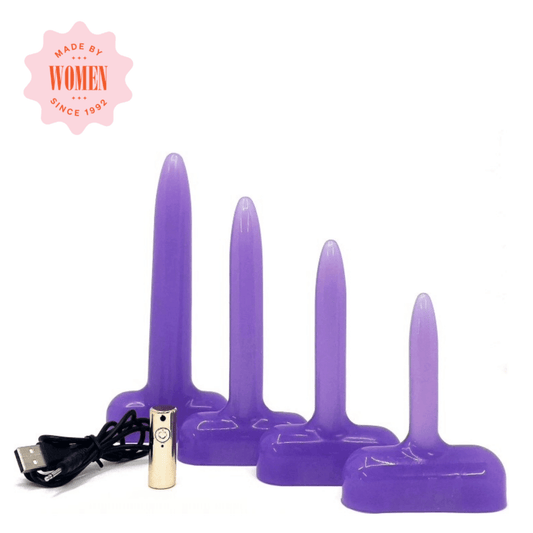



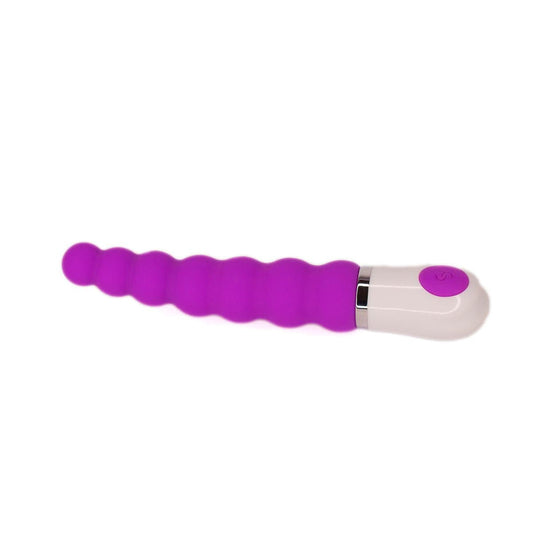
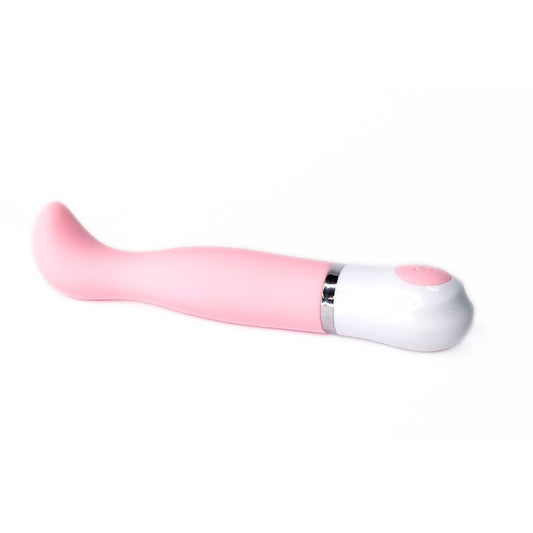
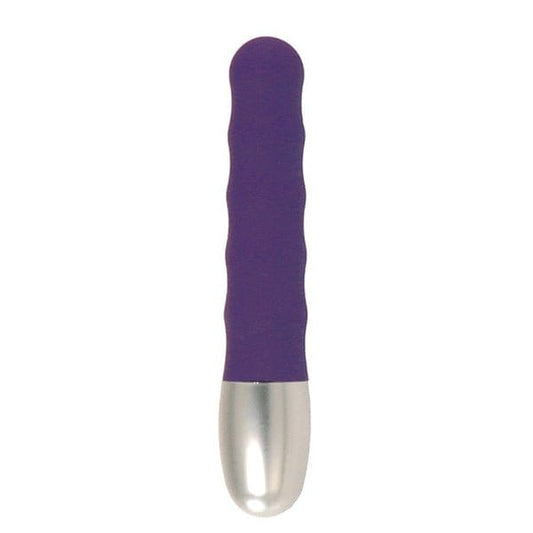
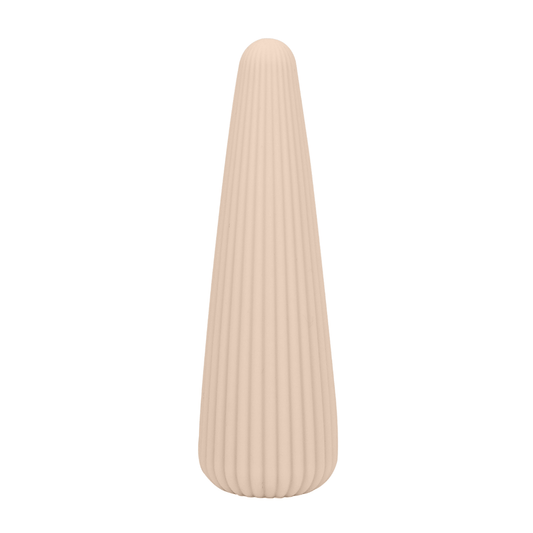
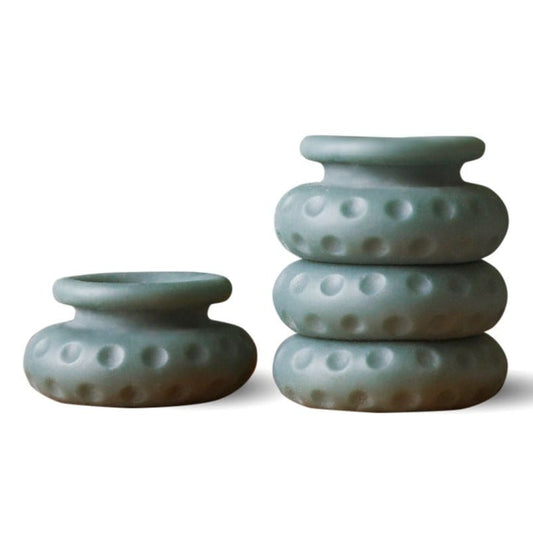





















2 comments
Great point Han, we have updated the article :)
What a wonderful hetero/bisexual-orientated article! Would it really be too much for the author to add “or dildo” after the word penis, for those women who are less inclined to keep one nestling in a warm place…